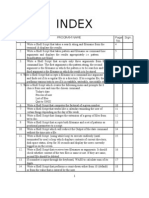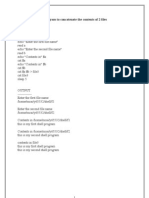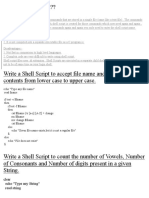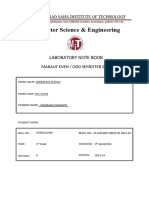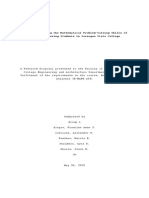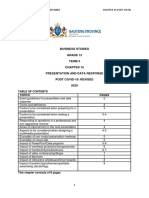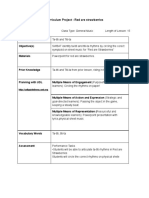0% found this document useful (0 votes)
19 views14 pagesLab Manual
The document contains a series of shell scripts that perform various tasks, including printing prime numbers, reversing numbers, summing digits, implementing Linux commands, copying files, comparing data files, counting vowels, and handling processes. Each script is designed to demonstrate specific programming concepts and functionalities in bash. The scripts are well-structured and include user prompts for input.
Uploaded by
dhanushchitra579Copyright
© © All Rights Reserved
We take content rights seriously. If you suspect this is your content, claim it here.
Available Formats
Download as PDF, TXT or read online on Scribd
0% found this document useful (0 votes)
19 views14 pagesLab Manual
The document contains a series of shell scripts that perform various tasks, including printing prime numbers, reversing numbers, summing digits, implementing Linux commands, copying files, comparing data files, counting vowels, and handling processes. Each script is designed to demonstrate specific programming concepts and functionalities in bash. The scripts are well-structured and include user prompts for input.
Uploaded by
dhanushchitra579Copyright
© © All Rights Reserved
We take content rights seriously. If you suspect this is your content, claim it here.
Available Formats
Download as PDF, TXT or read online on Scribd
/ 14










